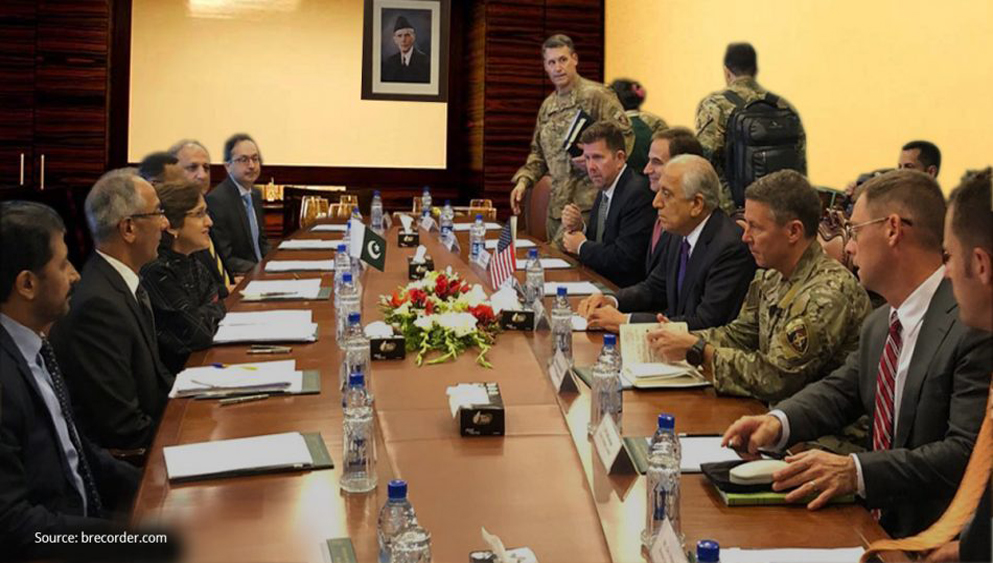Meeting Pakistan’s Energy Security: The Implication of Afghanistan Peace Process

TAPI and the Afghanistan Peace Process: A Strategic Opportunity for Pakistan
A New Chapter for Regional Integration
Recent progress in Afghanistan’s peace process has sparked renewed debate on its broader regional implications. For Pakistan, a peaceful and stable Afghanistan could usher in significant economic and strategic benefits. One of the most promising prospects lies in regional energy connectivity — specifically, the revival of the Turkmenistan-Afghanistan-Pakistan-India (TAPI) gas pipeline, a project that has long remained stalled due to conflict and political uncertainty.
TAPI: A Win-Win for the Region
Turkmenistan, endowed with substantial natural gas reserves, is eager to diversify its energy exports to South Asia. Both Pakistan and India are energy-deficient and actively seek affordable and sustainable sources to meet growing demand. Afghanistan, positioned at the heart of the route, stands to benefit economically by collecting transit fees and facilitating regional trade.
Signed in 2010, the TAPI pipeline agreement offered a mutually beneficial solution to all four signatory countries. While Turkmenistan completed its section of the pipeline years ago and work began in Afghanistan soon after, progress has since slowed due to land acquisition disputes and security concerns within Afghan territory.
Security Challenges in Afghanistan
A major roadblock for TAPI’s implementation has been the volatile political and security environment in Afghanistan. Despite the Taliban’s assurances of support for what they have called a “national project,” the presence of insurgent groups such as Al-Qaeda, Islamic State (IS), and various splinter factions continues to pose a threat to the pipeline’s security.
The long-term success of TAPI hinges on whether Afghanistan can ensure safe transit along the proposed route. This, in turn, depends on the sustainability of the current peace efforts and on bringing various stakeholders, including local communities and tribal leaders, on board.
The Geopolitics of Pipeline Politics: Russia and the US
Russia’s Changing Stance
Historically, Russia opposed TAPI, viewing it as a challenge to its regional influence. Moscow had concerns that increased Turkmen gas exports to South Asia could undercut its own position in European markets. However, a noticeable shift has occurred in recent years: Russia has expressed interest in investing in TAPI and is actively involved in Afghan peace diplomacy. This change appears strategically motivated, as Moscow seeks to assert influence over regional infrastructure projects and counterbalance U.S. involvement in Central Asia.
The US Interest in TAPI
Conversely, the United States has long supported TAPI — not just as an energy project, but as a geopolitical alternative to the Iran-Pakistan (IP) pipeline. Washington’s opposition to the IP pipeline, largely due to tensions with Iran, has been a major factor behind Pakistan’s delay in completing its section of the project.
In addition, the U.S. has proposed acquiring airbases in Turkmenistan to provide security for the TAPI corridor — a move perceived by Russia as an attempt to expand its strategic footprint in the region. Consequently, Russia’s evolving stance on TAPI may also be an effort to counteract American influence in Central Asia’s energy and security domains.
Pakistan’s Strategic Calculus
For Pakistan, TAPI represents more than just an energy solution — it is a chance to strengthen economic ties with Central Asia, reduce dependency on more volatile energy markets, and support regional integration.
However, in navigating this complex landscape, Pakistan must tread carefully. Aligning too closely with either Russia or the United States could undermine long-term strategic autonomy. Instead, Pakistan should pursue an interest-driven, balanced foreign policy, focusing on:
Supporting a stable and inclusive peace in Afghanistan.
Advocating for timely completion of TAPI.
Coordinating with all regional stakeholders while avoiding bloc politics.
Conclusion: A Pipeline to Progress
With the evolving regional order and improving security landscape, TAPI holds renewed promise for Pakistan’s energy security and economic growth. Yet, its success is contingent on sustained peace in Afghanistan and pragmatic regional cooperation. By maintaining a balanced diplomatic approach and investing in long-term energy infrastructure, Pakistan can transform TAPI from a distant dream into a strategic reality.
